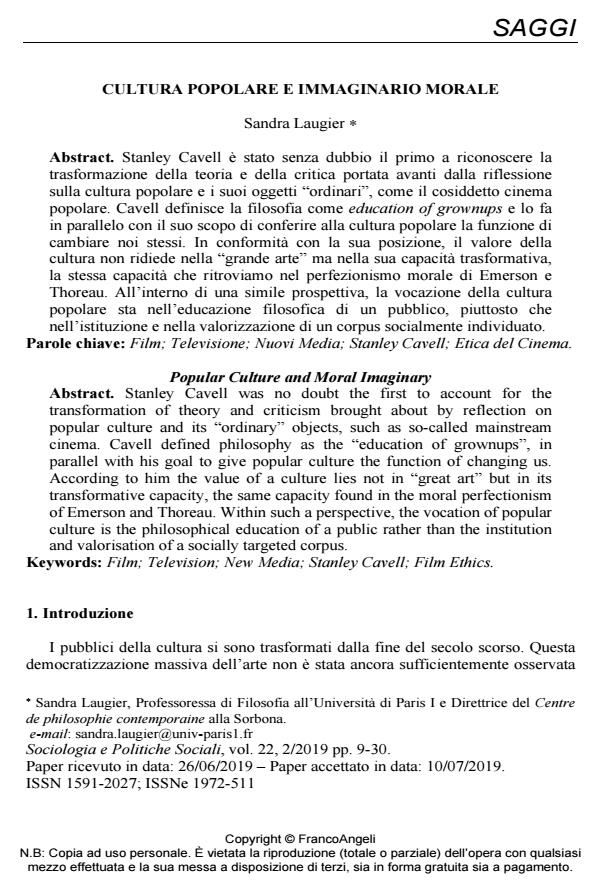Popular Culture and Moral Imaginary
Journal title SOCIOLOGIA E POLITICHE SOCIALI
Author/s Sandra Laugier
Publishing Year 2019 Issue 2019/2
Language Italian Pages 22 P. 9-30 File size 259 KB
DOI 10.3280/SP2019-002002
DOI is like a bar code for intellectual property: to have more infomation
click here
Below, you can see the article first page
If you want to buy this article in PDF format, you can do it, following the instructions to buy download credits

FrancoAngeli is member of Publishers International Linking Association, Inc (PILA), a not-for-profit association which run the CrossRef service enabling links to and from online scholarly content.
Stanley Cavell was no doubt the first to account for the transformation of theory and criticism brought about by reflection on popular culture and its "ordinary" objects, such as so-called mainstream cinema. Cavell defined philosophy as the "education of grownups", in parallel with his goal to give popular culture the function of changing us. According to him the value of a culture lies not in "great art" but in its transformative capacity, the same capacity found in the moral perfectionism of Emerson and Thoreau. Within such a perspective, the vocation of popular culture is the philosophical education of a public rather than the institution and valorisation of a socially targeted corpus.
Keywords: Film; Television; New Media; Stanley Cavell; Film Ethics.
Sandra Laugier, Cultura popolare e immaginario morale in "SOCIOLOGIA E POLITICHE SOCIALI" 2/2019, pp 9-30, DOI: 10.3280/SP2019-002002